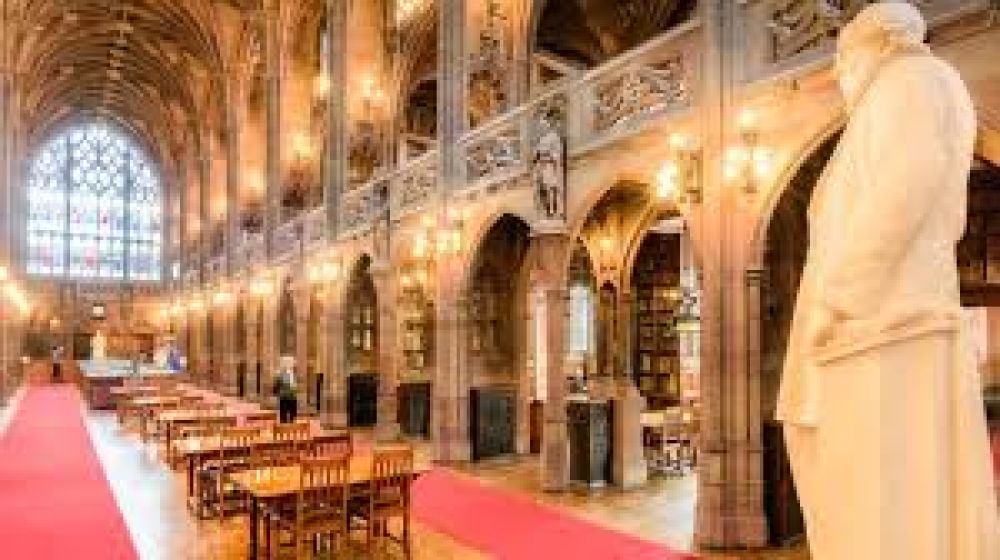

Nestled in the heart of Manchester, The John Rylands Library stands as a monument to the city's rich heritage in literature and learning. Opened to the public on 1 January 1900, the library was founded by Enriqueta Augustina Rylands in memory of her husband, John Rylands, who was a prominent Manchester entrepreneur. Since its inception, the library has become a cornerstone of cultural tourism in Manchester.
The library's Victorian Gothic architecture, designed by Basil Champneys, has captivated visitors for over a century. Its stunning historical reading room, grand stone vaults, and intricate stained glass have made it a must-see for architecture enthusiasts and history buffs alike. Initially, the library's collections attracted scholars and researchers, but its unique beauty quickly garnered the attention of a broader public audience, transforming it into a popular tourist attraction.
Throughout the 20th century, the library's fame grew, and it became revered for housing one of the world's most exquisite collections of rare books, manuscripts, and medieval texts. The Papyrus P52, believed to be the oldest known fragment of the New Testament, is among the precious artifacts housed here. Such treasured possessions have turned The John Rylands Library into a pilgrimage site for academics, theologians, and historians.
In recent years, the library has embraced innovation to enhance the visitor experience. With the rise of digital technology, virtual tours and online exhibitions have become a significant draw, allowing a global audience to explore the collections from anywhere in the world. Physical visits remain popular, and the library continually offers new exhibitions, workshops, and events to keep the experience refreshing.
The integration of social media has played a pivotal role in the library's recent tourism trends. Platforms such as Instagram have allowed visitors to share their experiences instantly, showcasing the library's magnificent interiors and exhibitions to a wider audience and inspiring more visits.
Educational tourism is another growing trend. The library frequently collaborates with the University of Manchester and other educational institutions to host seminars, lectures, and conferences. This strengthens its reputation as a center of knowledge and learning, and attracts visitors interested in educational and cultural enrichment.
Sustainability is also at the forefront of modern tourism, and The John Rylands Library is not behind. Efforts are being made to reduce its environmental impact and to promote practices that contribute to conservation, aligning with the priorities of today's environmentally-conscious travelers.
Access to the library is free, though some special exhibitions and events may charge a fee. It is open to visitors throughout the year, with guided tours available to offer deeper insights into its history and collections. Whether one is marvelling at ancient texts or admiring the spectacular architecture, The John Rylands Library remains one of Manchester's most treasured attractions.